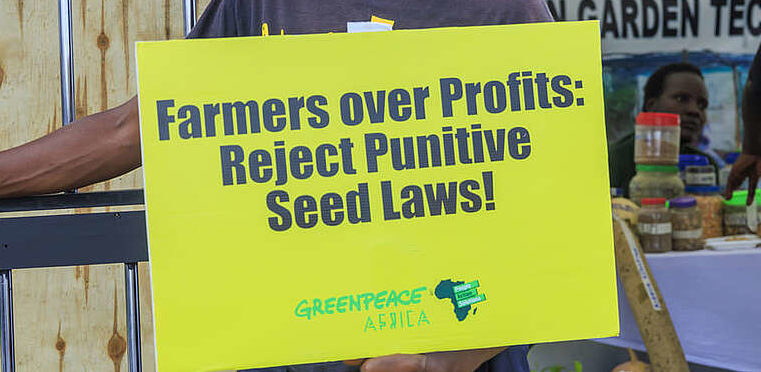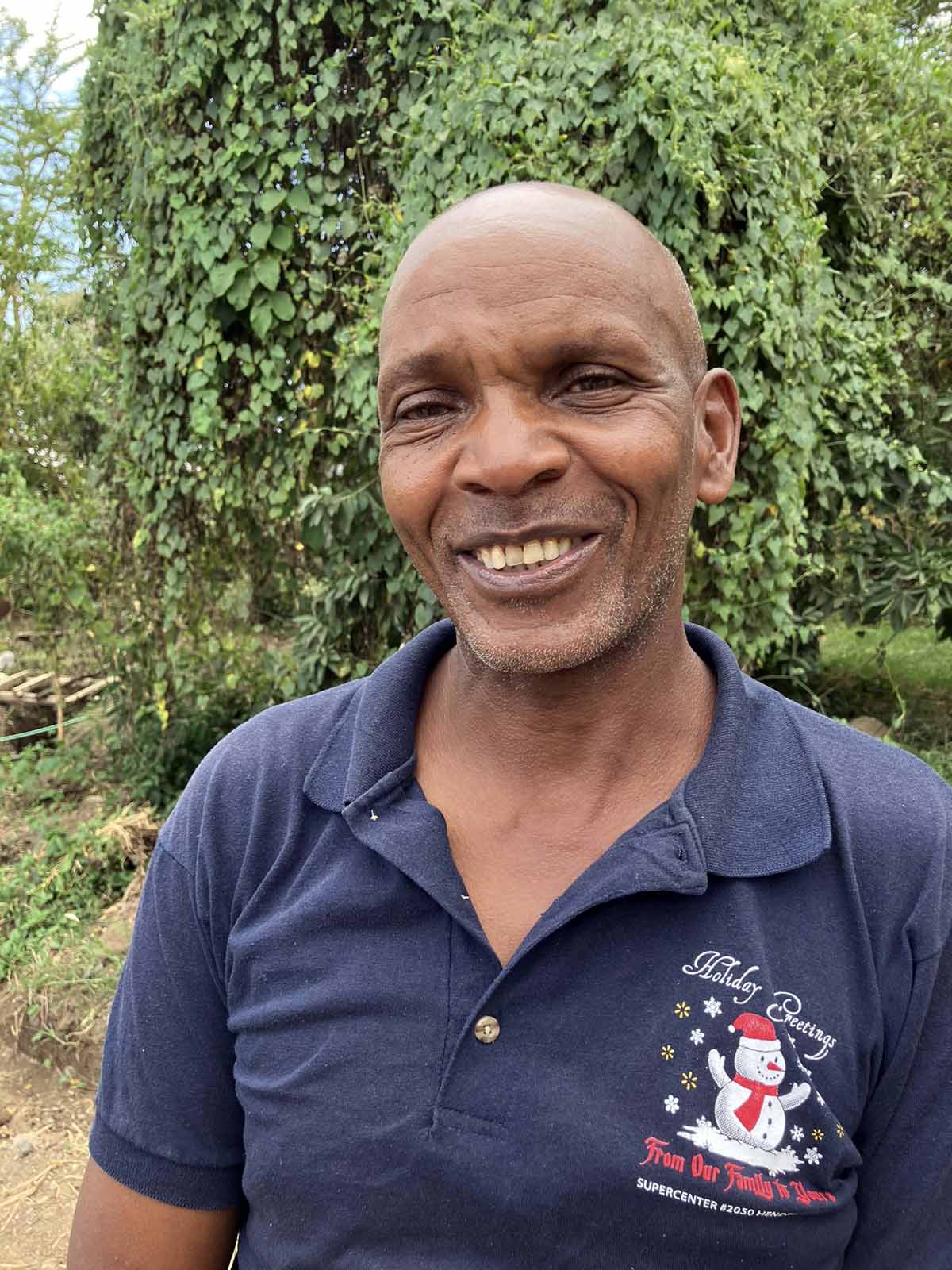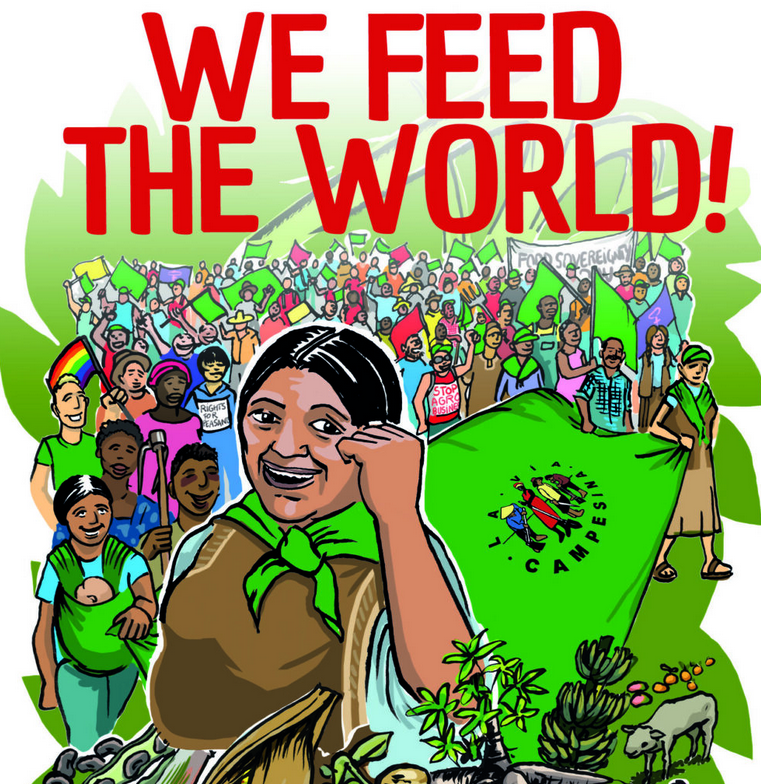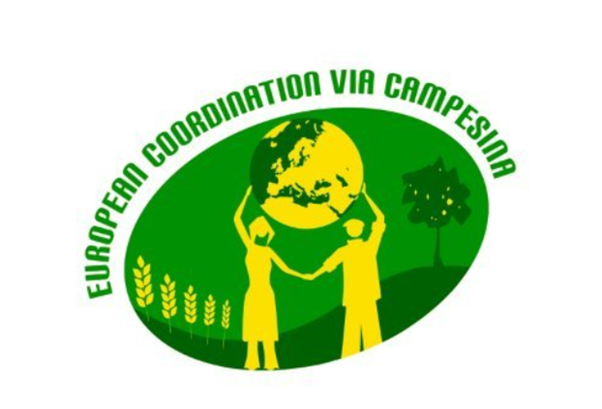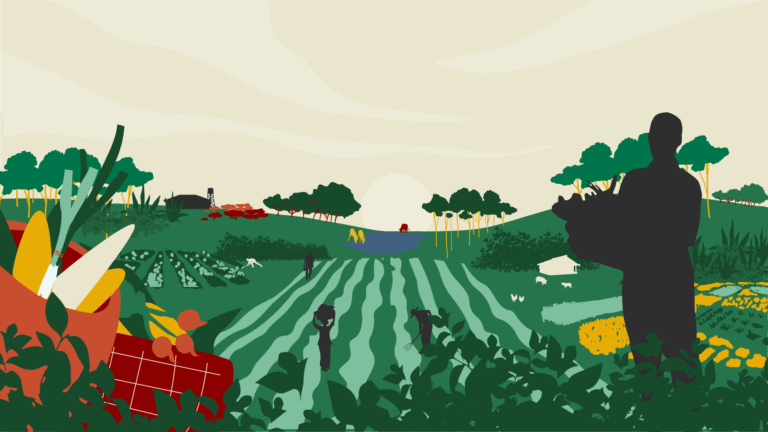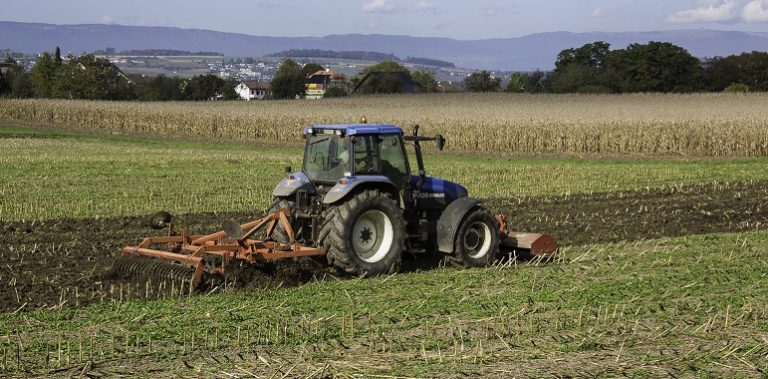Kenyan Farmers Challenge the Constitutionality of Seed Law
In 2022, fifteen farmers from different regions of Kenya filled a lawsuit against the Seeds and Plant Varieties Act. This law prohibits and even criminalizes the sale and exchange of peasants seeds by the farmers that have developed them. The claim of the fifteen farmers is based on the Constitution of Kenya. As you will read in this article, this Act is in direct contradiction with the farmers rights enshrined in the Kenyan Constitution and an obstacle to the development of their activities and livelihood. It is also a direct violation of UNDROP article 19 on the right to seeds. The first paragraph of the article states that peasants have : “(d) The right to save, use, exchange and sell their farm-saved seed or propagating material“. Any law saying otherwise is then in contradiction with UNDROP and must be changed.
On July 24th, 2024, the case will be heard by the Court, it could be a precedent making case that deserve attention and support. This action is a very good example of how a legal strategy can be rooted in peasant struggle and led directly by them.
Kenyan farmers have filed a lawsuit alleging that the Seeds and Plant Varieties Act (CAP 326), which criminalizes the sharing or sale of farmers’ varieties, violates various provisions of Kenya’s Constitution.
A restrictive and criminalizing law environment for peasants’ seeds systems.
Kenya was among the earliest African adopters of legal arrangements designed to support commercial breeding and privatize seed. Kenya passed Seeds and Plant Varieties Act in 1972 and, in 1999, became the second African nation to join the UPOV Convention which provides intellectual property protections for new varieties of crop cultivars. In 2012, Kenya’s original 1972 seed law was repealed and replaced with an updated version that brought it into accord with the stricter requirements of UPOV-91. Revision of the law was negotiated by government agencies and private sector seed companies without meaningful participation from farmers and was undertaken primarily to create an “enabling environment for a growing and innovative crop seed sector”.
Kenya’s Seeds and Plant Varieties Act Cap 326 (SPVA) is now among the world’s most restrictive seed marketing laws. The Act establishes an “Index of names of plant varieties” that are approved for sale. To be placed on the index, varieties must be uniform, stable, and have undergone official performance trials. The selling of any seeds not on this national list is prohibited. Notably, selling is broadly defined not just as “offering or exposing for sale,” but also encompasses “barter” and “exchange” (CAP 326:2). Anyone growing or selling seed must be registered (CAP 326:3:1:c) with the “prescribed authority” (CAP 326:3:3:e). Anyone selling seed that contravenes any provision is committing an offense subject to a fine of up to one million shillings [about US$ 7,500] or imprisonment of up to two years (CAP 326:10:4).
While the law reinforces and strengthens “plant breeder’s rights,” the common and time-honored rights of Kenyan farmers to share and exchange seeds are legally prohibited and effectively criminalized. The genetically diverse landraces developed and cultivated by farmers do not fit the DUS (distinct, uniform, stable) requirements for listing on the national index. Most farmers have neither the financial nor the administrative resources for performance testing, registration, and strict record keeping. But if farmers share, exchange, and barter – much less sell – seed which is the product of their own labor and ingenuity, they face onerous fines and even prison. Kenya’s Seeds and Plant Varieties Act (CAP 326) is a direct and unjust assault on the rights and livelihoods of Kenya’s farmers.
Emergence of the fight against the loss of seed sovereignty
Smallholder farmers in Kenya have been increasingly unwilling to submit to the disenfranchisement occasioned by the imposition of the Seeds and Plant Varieties Act. They have been encouraged and catalyzed in their resistance by Seed Savers Network Kenya (SSNK). SSNK is a non-profit organization that applies the principles of agroecology and participatory education in support of farmer managed seed systems and farmers’ rights. SSNK has developed a network of seventy community seed banks and its modest campus hosts an almost constant stream of farmers who come for training courses.
This flow of participants from diverse communities and regions of Kenya has been a fertile forum for sharing information and ideas. From discussions among farmers and SSNK staff there emerged a conviction that something needed to be done to halt the erosion of seed sovereignty and to preserve farmers’ freedom to share and preserve their genetic heritage. A key insight was the realization that the restrictions imposed by the Seeds and Plant Varieties Act appear to violate key provisions of the Kenyan Constitution. Dominic Kimani, SSNK Advocacy, Monitoring & Evaluation Officer, explains:
“The Kenyan 2010 Constitution is progressive and supports a farmer managed seed system. This is well enshrined under article 11 which focuses on culture where indigenous seeds are valued for their contribution to economic development. Our constitution provides for recognition and protection of indigenous seeds and being the supreme law of the land, the attempts by the Seed Act to limit use of indigenous seeds by farmers contravenes it. There is dire need to get a judicial interpretation to ensure farmers’ rights are safeguarded”.
A Petition rooted in the Kenyan Constitution and Human Rights
Over the course of two years, SSNK staff facilitated the organization of a coalition of groups from seven of Kenya’s counties. SSNK established a working relationship with Greenpeace Africa which led to the acquisition of formal legal representation. In September 2022, a petition was filed with the High Court of Kenya at Machakos in the Constitutional and Human Rights Division. Of the seventeen petitioners, fifteen were smallholder farmers from seven of Kenya’s counties. Each farmer petitioner filed on their own behalf and on behalf of groups of local farmers in their respective counties and sub-counties. Greenpeace Africa and Seed Savers Network Kenya joined the farmers as the sixteenth and seventeenth petitioners.
The petition appears to be very strong. It claims that the Seeds and Plant Varieties Act of 2012 contravenes a number of the Constitution’s articles. In brief, some of the most important points include:
- Article 2(6) of the Constitution provides that international treaties ratified by Kenya shall form part of the law of Kenya. The petition suggests that the SVPA is not consistent with recognition of farmers’ rights as established by the International Treaty on Plant Genetic Resources for Agriculture.
- Article 43(1)(c) of the Constitution establishes the right “to be free from hunger.” The petition suggests that the SPVA’s restrictions on seed sharing and exchange unreasonably increase food insecurity.
- Article 11(2)(c) of the Constitution mandates the promotion of the “intellectual property rights of the people of Kenya.” The petition suggests that the SVPA fails to accord farmers’ varieties any protection.
- Article 11(3)(a) of the Constitution requires that communities receive compensation or royalties for the use of their cultural heritage. The petition suggests that farmers’ varieties are form of cultural heritage and that the SVPA fails to reward communities for their appropriation and use.
- Article 11(3)(b) of the Constitution is perhaps the most powerful of all. It directs Parliament to “recognise and protect the ownership of indigenous seeds and plant varieties, their genetic and diverse characteristics and their use by the communities of Kenya.” The petition suggests that the SVPA violates this article by criminalizing – rather than recognizing and protecting – food sovereignty practices such as seed saving and sharing.
The “human rights” angle seems especially powerful given the increasing recognition of peasants’ right to seeds in international human rights law.
Francis Ngiri is one of the petitioners and is a leader of the Makongo Farmers Network in Machakos County. He explained the situation like this:
“So, our constitution guarantees us freedom of our seeds, that we should be benefiting from our natural resources including seeds. And we feel that the 2012 Act which criminalizes selling of our seeds, or exchanging or even gifting, was wrong and we went to court for interpretation so that the court can interpret and maybe ban that bad law which is prohibiting us from owning our seeds.” Francis Ngiri
Kenyan farmers are not alone in resorting to the courts to defend their right to seeds. A coalition of farmers and civil society organizations in Nigeria filed a lawsuit in 2021 seeking an injunction on constitutional grounds that would restrain implementation of a plant variety law allowing Nigeria to join UPOV-91. And in Honduras farmers sued to have a 2012 seed law declared unconstitutional. They lost in 2016 and again in 2018, but in 2021 the Honduran Supreme Court of Justice finally agreed with them and struck down the law.
The wheels of Kenyan justice have been turning very slowly, and some suggest that this has been by design. It is hypothesized that the government is taking the suit quite seriously and is working to delay proceedings to gain time to make some reformist adjustments to defuse seed activism. Another hearing has been scheduled for July 24. The farmers behind the legal challenge are anxious for progress and are organizing to bring a large number of farmers to the hearing. According to Beatrice Wangui, one of the petitioners and a member of the Nakuru Seed Savers Network, “We are looking forward to getting reactions from the Attorney General and KEPHIS [Kenya Plant Health Inspectorate Service] through their lawyers. Farmers will also be represented and are looking forward to a positive verdict following this hearing.”
Unaccountably, the Kenyan farmers’ lawsuit has received little coverage either in Kenya or internationally. The damaging effects of restrictive seed legislation based on UPOV and similar models are now well recognized and documented. What is needed is more awareness of and attention to new platforms for resistance and to the concrete actions that are being taken in pursuit of farmers’ rights and seed freedom.
Seed Savers Network Kenya would like to ask for international solidarity and support for creating awareness around their lawsuit defending farmers’ rights. Financial support is especially needed to allow farmers to travel to the hearing and for further prosecution of the case. Those interested in providing support should contact SSNK by email at [email protected] or by phone at +254712451777 for more information.

